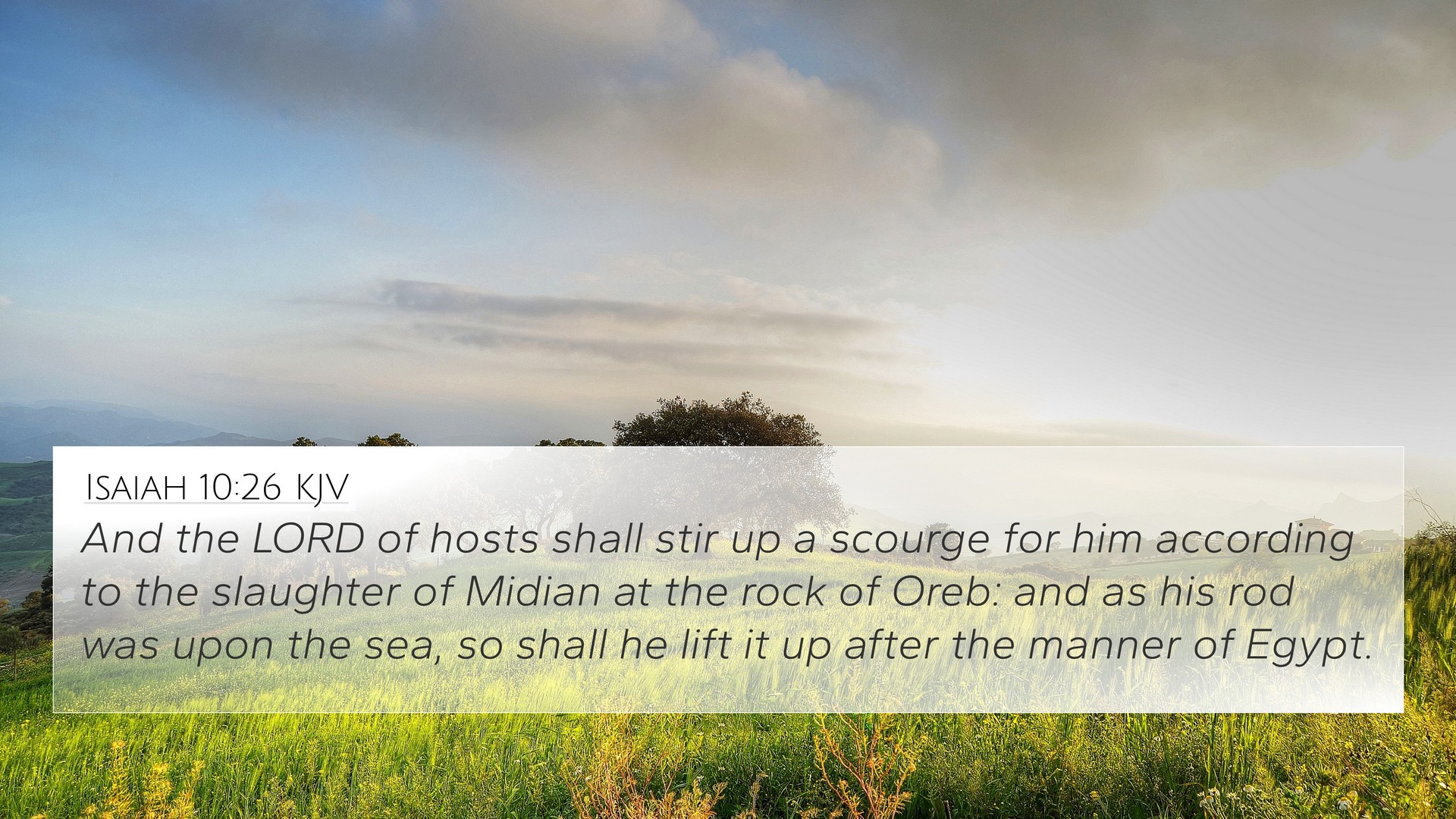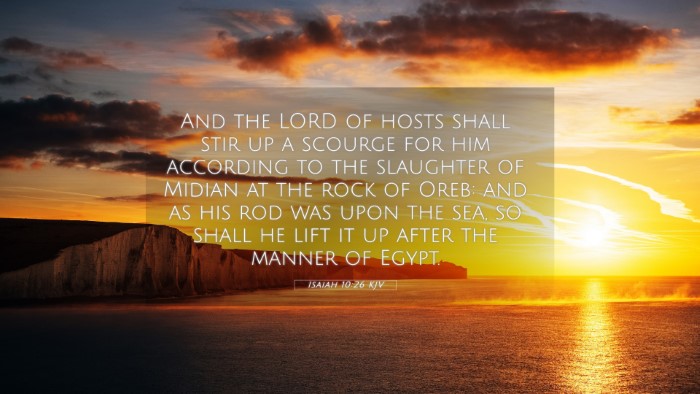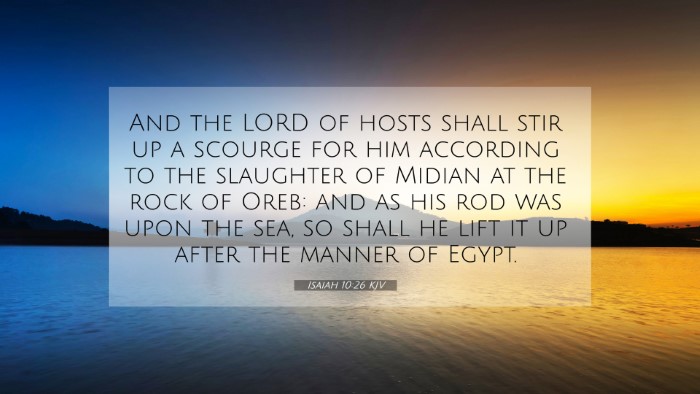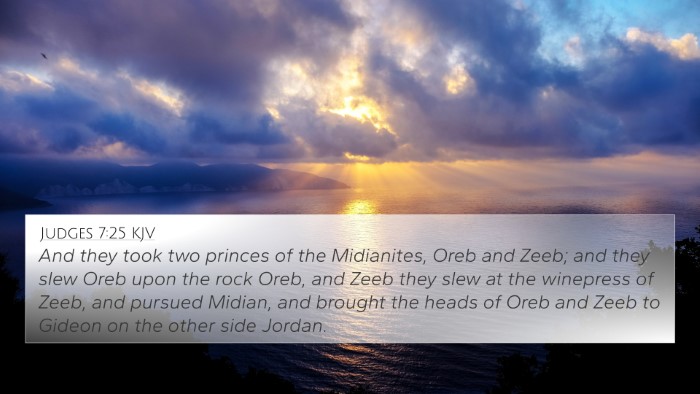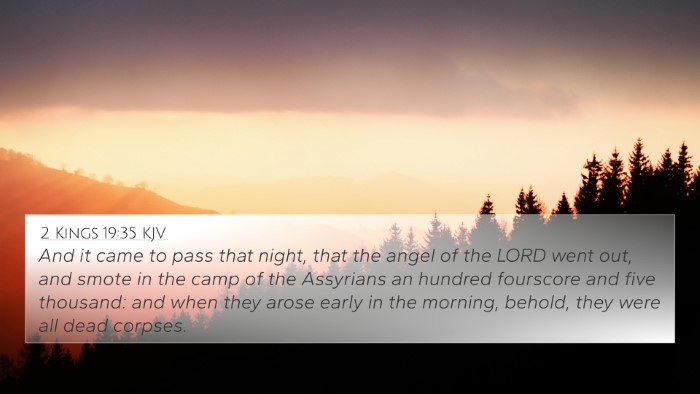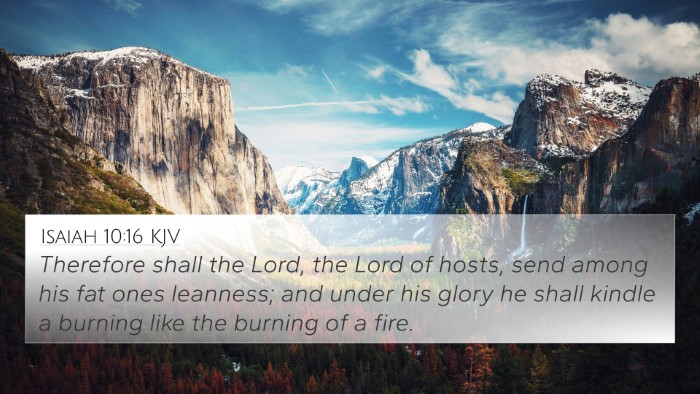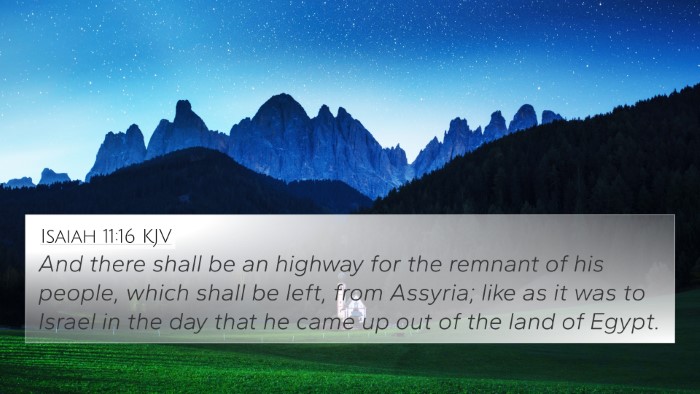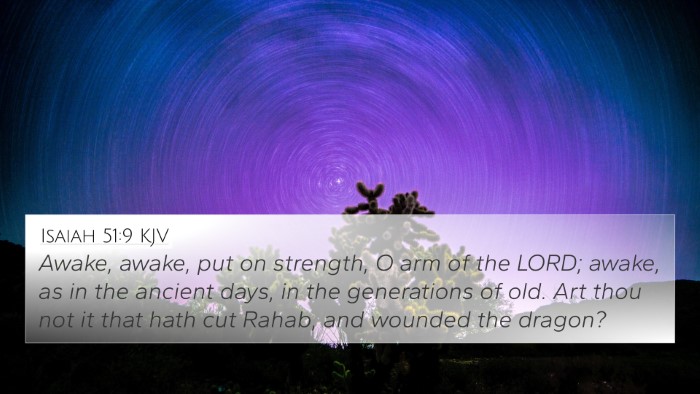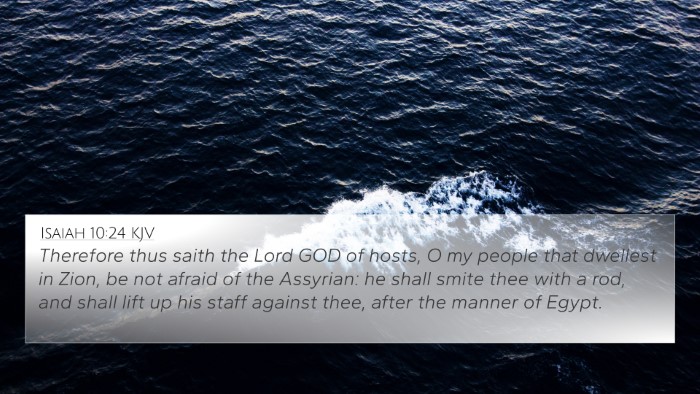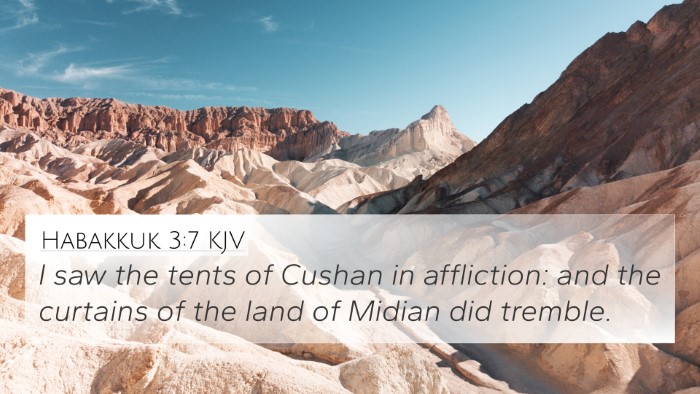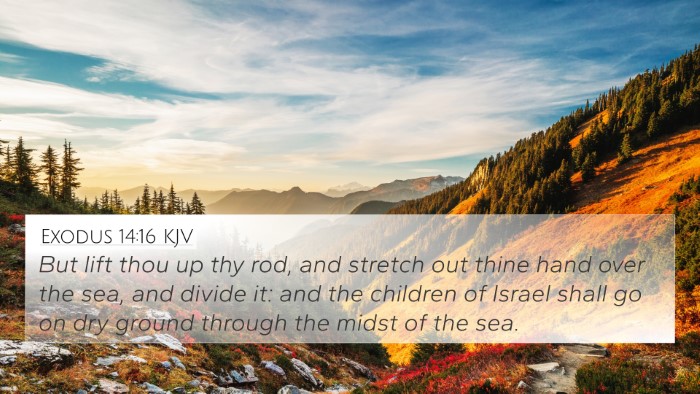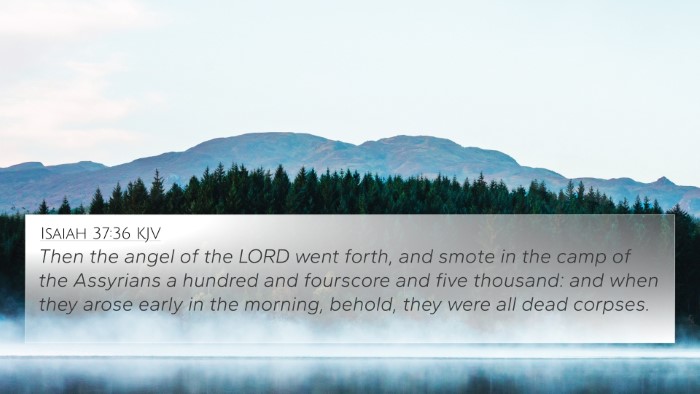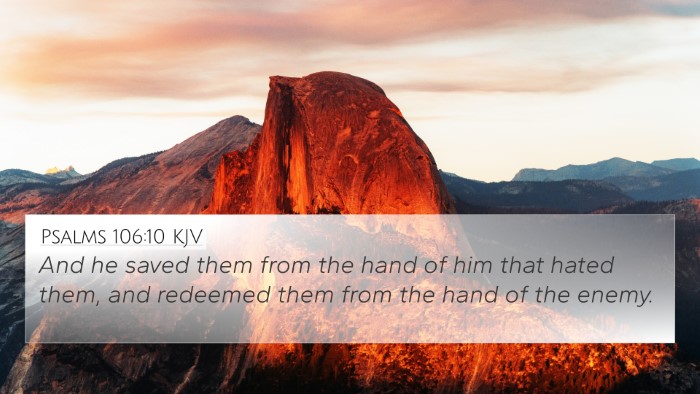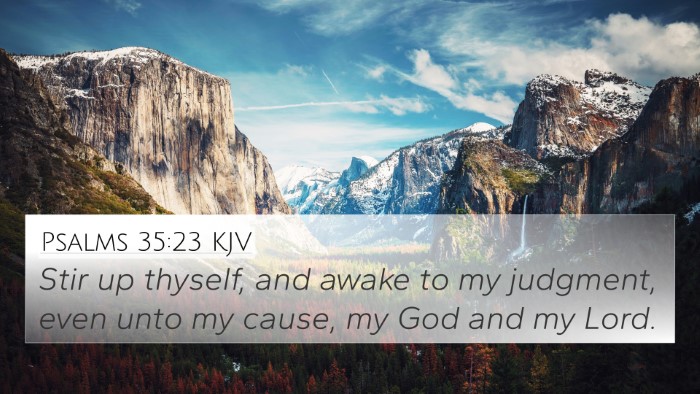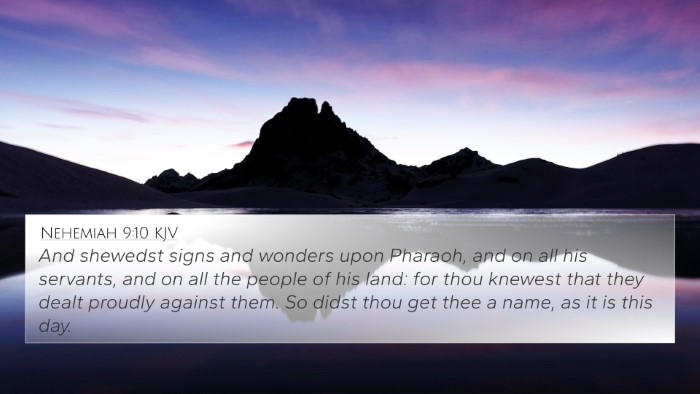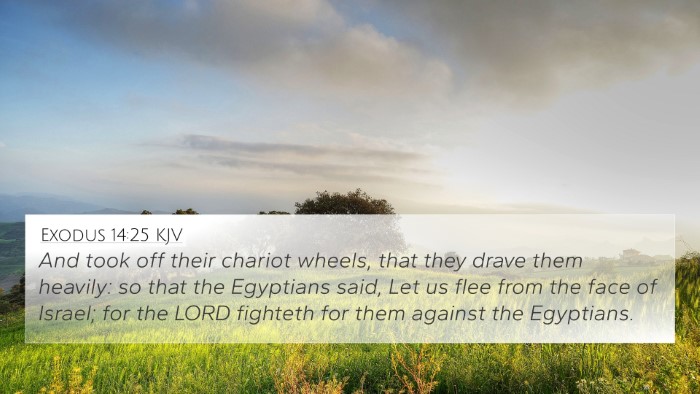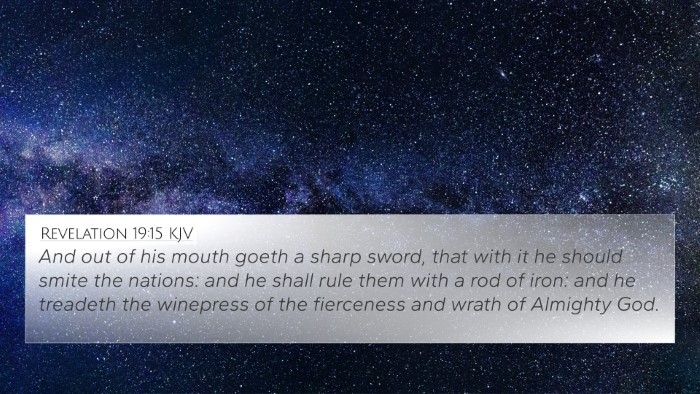Understanding Isaiah 10:26
Isaiah 10:26 states, "And the Lord of hosts shall stir up a scourge for him according to the slaughter of Midian at the rock of Oreb: and as his rod was upon the sea, so shall he lift it up after the manner of Egypt." This verse originates from a context of prophecy concerning God's judgment and deliverance. To understand this verse properly, we can explore it through various public domain commentaries such as those by Matthew Henry, Albert Barnes, and Adam Clarke.
Context and Significance
In Isaiah's prophetic speech, the focus is on God's sovereignty and His ability to deliver His people from oppression, paralleling historical instances of judgment and deliverance.
Commentary Insights
- Matthew Henry emphasizes that this verse highlights God's power to reclaim His people from evil rulers. He draws parallels to the past when God delivered Israel from Midian, underscoring the divine intervention that prevails against oppressors.
- Albert Barnes notes that the specific reference to the slaughter of Midian recalls the defeat faced by Israel's enemies. This serves as a reminder of God's mighty actions in history and anticipates His active role in the forthcoming judgments upon Assyria.
- Adam Clarke delves into the metaphor of the 'rod' used here, likening it to God's discipline and authority. Clarke remarks that just as God used a rod to part the sea, He is capable of extraordinary feats for His people.
Thematic Connections
This verse serves as a critical link to various themes within the Bible, particularly the themes of judgment, deliverance, and divine authority.
Cross-References
Here are some relevant Bible verse cross-references that relate to Isaiah 10:26:
- Judges 7:19-22 - The defeat of Midian by Gideon, demonstrating God's deliverance.
- Exodus 14:21-22 - God parting the Red Sea, highlighting His power and support for Israel.
- Isaiah 10:24 - The preceding verse that discusses God's warning to His people about Assyria.
- Isaiah 11:4 - The messianic prophecy that foretells God's just rule over the nations.
- Isaiah 9:4 - A mention of oppressors being broken by God's might.
- Micaiah 1:3 - The call for judgment against the nations, establishing God's authority over all.
- Psalm 83:9-12 - A plea for divine intervention against enemies, reflecting a similar cry for help as seen in Isaiah's prophecy.
Comparative Bible Verse Analysis
By conducting a comparative analysis of these verses, one can see the emerging patterns of God's wrath upon oppressors and His promise of hope for His people. The prophetic books often interweave themes that echo the historical struggles of Israel.
Links Between the Prophets and Apostolic Teachings
The connections between this Old Testament prophecy and the New Testament teachings further illustrate the cohesive narrative of deliverance in the Bible. For instance, references to God as the 'Judge' and 'Deliverer' are found throughout the Pauline epistles, showing consistent themes of hope amidst judgment.
Tools for Bible Cross-Referencing
Utilizing tools for Bible cross-referencing can help provide deeper insights into how various scriptures relate. Resources such as:
- Bible concordance
- Bible cross-reference guide
- Comprehensive Bible cross-reference materials
User Intent Keywords
For those seeking to understand what verses are related to Isaiah 10:26, consider how to find cross-references in the Bible that elucidate God's relationship with His people during times of trial.
Conclusion
Isaiah 10:26 is rich with meaning that connects various biblical themes and scriptures. Understanding it through multiple lenses—including historical context, thematic parallels, and cross-referencing—allows for a more profound appreciation of the text's implications for faith and God's ongoing story with His people.
